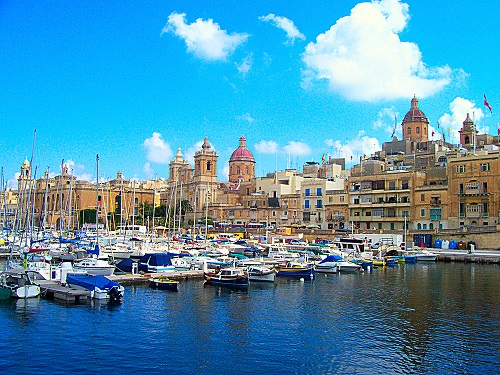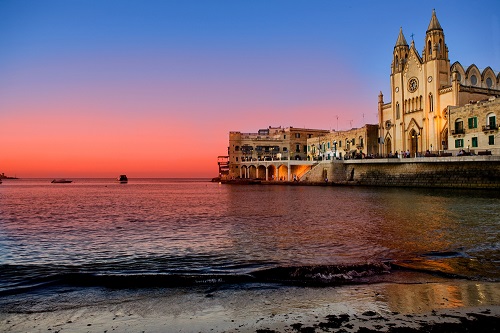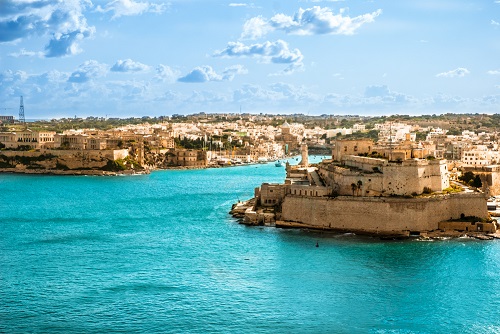Whether or not you are allowed to enter the beautiful island of Malta without a visa will depend on your nationality. It may be that you need to apply for a Schengen visa, which is a short-term entry visa applicable to the countries in the Schengen Area. Read on to better understand your options.
Will I need a visa?
Your need for a visa will depend on your country of origin. If you are from an EU/EEA member state or the UK, you will not need a visa for the first 90 days of your visit. Similarly, if you are American or Australian, or a member of one of the nations with which Malta has a visa arrangement, you will be able to enter the country using just your travel documents. After 90 days, EU/EEA nationals must register their presence in Malta.
If you are a non-EU/EEA foreign national, you must apply for a uniform residence permit if you are staying in Malta for more than 90 days.
If you are a third country national from a country that does not have a visa-free agreement with Malta, you will need to apply for a Schengen visa.
Non-EU/EEA nationals, or third country nationals, cannot stay in Malta on a 90-day visa for more than 90 days (three months) in any 180-day period (six months).
Third country national visitors to Malta must also have documents substantiating the purpose of their stay in Malta. You will need to have sufficient means of support for your stay, and be able to prove return transit to your country of origin, unless you are in possession of a residence permit from a Schengen member state.

How do I apply for an entry visa?
In order to apply for a Schengen type D long-term/national visa, or a Schengen type C short-stay visa, you will need:
• A completed application form
• Two passport-format photos
• Your passport and any copies of previous visas
• Travel insurance (including medical coverage) with confirmation of a minimum of €30,000 coverage within the entire Schengen area
• A cover letter stating the purpose of your visit and itinerary
• Proof of civil status (for example, your marriage certificate, the birth certificates of your children etc.)
• Flight itinerary
• The address of your accommodation, including hotels
• Proof that you are able to support yourself financially throughout your stay (for example, a recent statement from your bank for the last three months that shows funds of at least €50 (£40) per day, or traveller’s cheques, or proof of sponsorship)
You may need further documentation depending on your status. If you are employed, you may need to supply:
• A contract of employment
• A letter of leave from your employer
• A bank statement for the last six months
• An income tax return
• Your business license (if you are self-employed)
If you are a student, you will need to include your certificate of enrolment at the relevant educational institution.
If you are retired, you will need a statement of your pension for the last six months.
How much does it cost?
The standard cost of a visa is €80, but you will be exempt if you are one of the following:
• A child younger than six years of age
• A family member of an EU/EEA national
Documents required for exemption are:
• Original marriage certificate or civil partnership certificate
• Original full birth certificate
• EU/EEA national’s passport
You will also be exempt if you are travelling for the purpose of study or educational training, such as if you are a school pupil, an undergraduate student or a postgraduate student. You must be accompanied by your teachers/professors. In addition, invited researchers are exempt.
Documents required for exemption are:
• An invitation letter from your destination institution
• A letter from the university/organisation in the UK
There is a reduced fee of €35 for nationals of countries that have a visa facilitation agreement with the EU.
Fees are non-refundable and are not a guarantee that you will be issued with a visa.
How long does it take?
It will take a minimum of 15 days to process your visa application.
What will I need to apply for a work visa?
If you are from an EU/EEA member state, with the exception of Croatia (which does not currently have a reciprocal agreement with Malta), you will not need a visa or a work permit. You will be able to work legally in Malta, as long as you have an e-residence card.
If you are from outside the EU/EEA, then your employer must apply for a work permit for you from the Employment and Training Corporation. They must also show why they have hired you in preference to a worker from a member state. The permit will be valid for one year, and is employer- and job-specific, i.e. you will not be able to transfer it to another job. You are allowed to apply for an extension.

Experts advise that there are relatively few work permits available and that your chances of securing one remain low unless you have highly specialist skills. You will need a visa before you can apply for a work permit, and note that obtaining a permit can take from several weeks to several months. Permits come into the following categories:
• Work permits for completing specific projects, as per your contract
• Employment permits for completing work in a specific location (usually temporary)
• Employment permits requested by companies for employees for a special project
• Work permits for specific occupations for which there is a shortage in Malta
You will need to submit the following documents:
• A completed application form (ECT 35)
• A cover letter from your employer
• A document listing your skills and qualifications
• A CV/resume
• Your visa and a copy
• Your passport and a copy
• Your recruitment letter or contract
• A job description
• References
• Passport-size photos
Bringing a pet into Malta
You can take your pet into Malta with you, but it will require:
• A pet passport
• A microchip
• A rabies vaccination at least 21 days before travel
• An import permit, which has to be obtained from the Agriculture • Department of Malta at least two weeks before travel
Your pet will need to be checked by a vet in the five days before it arrives, and will need a worming treatment.

